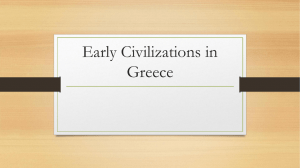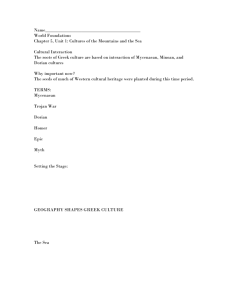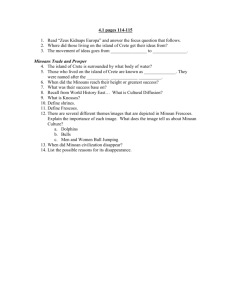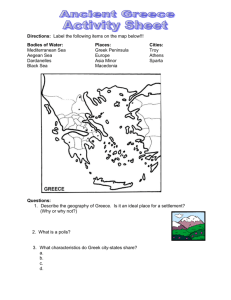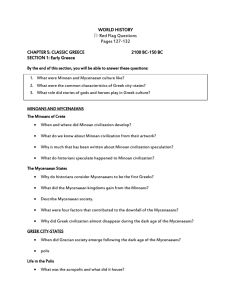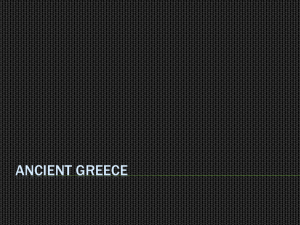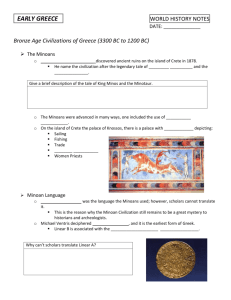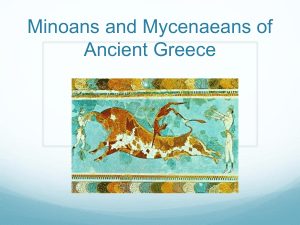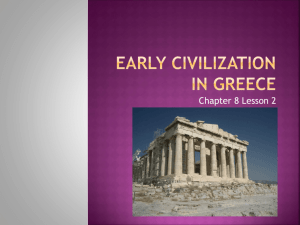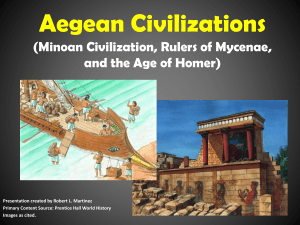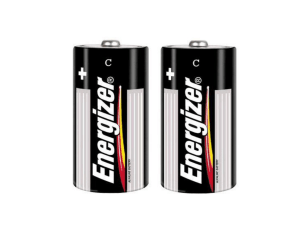Minoans, Mycenaeans, Dorians
advertisement
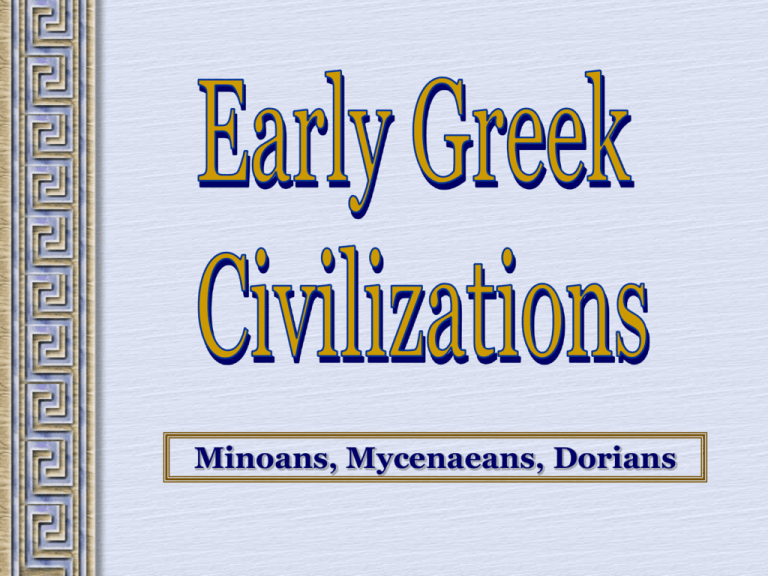
Minoans, Mycenaeans, Dorians Today’s Goal: Explain the contributions the Minoans, Mycenaeans, & Dorians made to Greek and later Western culture. Minoans (2000-1200 BC): Earliest Greeks • • • • Powerful seafaring traders Lived on island of Crete Traded pottery & figurines Capital = Knossos Great Palace at Knossos Sir Arthur Evans archaeologists who uncovered the Minoan palace at Knossos Detail of the Great Palace at Knossos (restored) No walls built around city…why? Civilization named after legendary King Minos The “throne of King Minos” Myth of Theseus & the Minotaur Pottery painting of Theseus slaying the minotaur The palace at Knossos is the maze Minoans Known for Frescoes = paintings on wet plaster walls Minoan Culture • Writing – Linear A – NOT deciphered • Social classes – nobles, citizens, slaves • Extensive trade • Minoan women enjoyed higher status - Depicted in artwork as working alongside men - Roles in religious ceremonies (priestesses) Fresco of “Bull Leaping” red colored male leaping over the bull Minoan Religion • Polytheistic religion • Worshipped female goddesses, priestesses • Minoans sacrificed animals and even humans to their gods End of Minoan Civilization • Earthquakes, volcanic eruption at Thera, & invasions • http://www.history.com/media.do?searchTerm=greece&action=se arch Contributions of Minoans to Greek Civilization • Mythology – Theseus - hero • Shipbuilding – Techniques • Art & architecture – Frescoes – Pottery – Columns • Influenced later Greek religion, politics Mycenaeans • Located on Peloponnesus (mainland peninsula) • Leading city = Mycenae • Protective wall surrounding city Lion’s Gate Lion’s Gate detail Mycenaean Government • Monarchy – rule by one person (king) • Agamemnon – one of most famous Mycenaean kings Death Mask of Agamemnon Misnamed because it is actually of an unknown king who lived some 300 years earlier Mycenaean Culture • Contact with Minoans • Adapted Minoan writing system to Greek language • Columns, frescoes, ships Trojan War • Mycenae fought 10-year war with Troy in Anatolia • Legend says Greek army destroyed Troy because Trojan prince had kidnapped Helen, the wife of a Greek king Troy Story told in Homer’s Iliad Paris kidnapped Helen & brought to Troy Paris’ brother Hector was great warrior, kills Helen’s husband Menelaus Greek hero Achilles kills Hector in revenge Greeks build Trojan horse as “gift” – filled w/soldiers After collapse of Mycenaeans, the Dorians migrate into Greece • 1100-750 BC • Decline of Greek culture • Far less advanced, no written records • Plunged Greece into Dark Ages Epics of Homer • Blind bard (poet) – Homer • Composed epics (Iliad, Odyssey) during Dark Ages • Spoken stories told through generations, later written down Greek Geography Shaped Civilization • Peninsula in the Mediterranean Sea (known as the Peloponnesus) • Seas transportation, trade • Land mountainous, rugged • • • • • Prevented unification Not much farmland Lacked natural resources No major rivers for irrigation Need for colonization According to Plato, Greeks lived around the sea “like frogs around a pond” Greek Geography Shaped Civilization • Climate Moderate, supported outdoor lifestyle Goal Revisited • What contributions did the Minoans, Mycenaeans, and Dorians make towards Greek culture?
